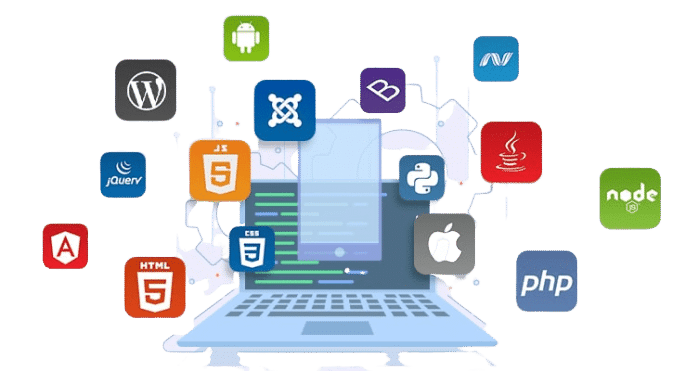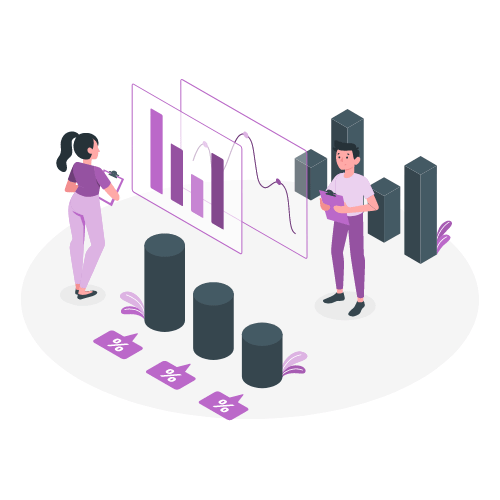LOYALTY
CUSTOMER ENGAGEMENT
Customer Engagement is not merely a strategy but a dynamic and integral part of a business's overall success. It involves the meticulous process of understanding, connecting, and continuously interacting with customers to build lasting relationships. By proactively monitoring customer interactions, loyalty metrics, and satisfaction levels, organizations gain actionable insights that go beyond immediate transactions, fostering a deeper understanding of customer needs and preferences.
The utilization of robust analytics in Customer Engagement is akin to having a compass that guides a company through the intricate landscape of consumer behavior. This analytical prowess allows businesses to decipher intricate patterns in customer interactions, enabling them to optimize the entire purchasing journey. This insight-driven approach is invaluable, as it provides a roadmap for creating personalized experiences, tailoring products and services to meet specific customer expectations.
A critical advantage of this approach is the profound understanding it affords businesses regarding their customers. Beyond surface-level demographics, organizations gain insights into the psyche of their clientele – their desires, motivations, and evolving preferences. Armed with this knowledge, businesses can not only adapt their current offerings but also innovate, staying ahead of the curve and proactively meeting emerging customer needs.
Customer Engagement is not a one-size-fits-all solution; it's a nuanced strategy that allows companies to tailor their messaging and interactions based on individual customer behaviors. This personalized approach is a cornerstone for crafting impactful marketing campaigns that resonate deeply with customers. By aligning marketing efforts with customer values and aspirations, businesses not only capture attention but also build an emotional connection that transcends mere transactions.
A cornerstone benefit of Customer Engagement is the cultivation of customer loyalty. In an era where choices abound, customers are more likely to remain loyal to a brand that acknowledges and appreciates their patronage. Building strong relationships is not just about attracting new customers; it's about retaining existing ones. Loyal customers become brand advocates, driving positive word-of-mouth and contributing significantly to a business's long-term success.
Furthermore, the strategy significantly contributes to enhancing customer satisfaction. By closely monitoring customer interactions, businesses can swiftly identify pain points and areas causing dissatisfaction. This proactive approach allows for the timely implementation of improvements, whether it be through additional support channels, refined product offerings, or personalized services. Prioritizing customer feedback and needs not only resolves issues but also creates a positive buying experience, significantly increasing the likelihood of repeat business and customer referrals.
In essence, an effective Customer Engagement strategy is not just a cost but an investment. It's an investment in understanding customers on a deeper level, in building relationships that transcend transactions, and in positioning a brand as not just a provider of goods or services but as a trusted partner in the customer's journey. Businesses that excel in Customer Engagement are not only able to foster loyalty and satisfaction but also position themselves for sustained growth by tapping into the powerful engine of customer advocacy and referral.
LOYALTY MARKETING
Loyalty marketing programs, spanning loyalty cards, rewards systems, and points, aim to reward and retain customers, fostering repeat business. These initiatives offer discounts, points per purchase, or redeemable rewards, encouraging continued patronage.
Crucially, loyalty marketing bolsters customer retention, fostering sustained business and heightened revenue. Additionally, it elevates customer satisfaction, amplifying positive experiences and referrals. Moreover, it augments brand visibility through positive word-of-mouth marketing, cultivating a broader customer base.
This strategy also facilitates data collection, leveraging customer information to refine targeted marketing. Implementing a comprehensive loyalty marketing program aids in customer retention, satisfaction, and business growth, making it a vital component for sustained success and long-term revenue generation.


MARKETING TECHNOLOGY
Discover the transformative power of Marketing Technology in revolutionizing modern business strategies. Embrace its automation prowess to streamline tasks like data analysis and customer segmentation, maximizing efficiency and resource allocation. Uncover valuable customer insights swiftly through data analytics tools, enabling tailored campaigns aligned with audience preferences.
Success with Marketing Technology hinges on aligning tools with specific business goals. By strategically integrating these technologies, businesses can unlock efficient solutions to amplify marketing impact. Understanding your objectives is key to leveraging this rapidly evolving field, reshaping marketing approaches for optimal results. Embrace Marketing Technology's potential to simplify processes and extract profound customer insights, propelling your business forward.
ANALYTICS
Unlock the power of analytics to understand customers better and elevate business strategies across industries and sizes. Advanced analytics offer insights into vital metrics like customer loyalty and lifetime value, crucial for operational success.
Analytics empowers businesses to proactively retain customers by spotting behavioral patterns, preventing potential issues, and enhancing customer experiences. Identifying at-risk customers allows tailored interventions to improve satisfaction and loyalty.
Additionally, analytics optimizes customer journeys, highlighting touchpoints for refining services, websites, and offerings. This strategic approach enhances overall user experience through personalized services and relevant products.
Ultimately, leveraging advanced analytics translates data into actionable insights, empowering businesses to meet customer needs effectively. Enhancing customer experience drives growth, fostering loyalty, higher lifetime value, and increased revenue. Harness the potential of advanced analytics to fortify customer relationships, improve experiences, and propel business growth.

FAQ's
Loyalty marketing is a strategic approach that emphasizes retaining and expanding a company’s current customer base. It involves employing incentives such as discounts, free samples, and exclusive offers to encourage and reward frequent shoppers, fostering long-term customer loyalty.
Marketing technology, often referred to as MarTech, encompasses a variety of software and tools designed to aid in achieving marketing goals or objectives. When a marketing team employs a combination of these technologies, it is commonly referred to as their marketing technology stack.
Customer engagement is the practice of interacting with customers to enhance the relationship between the customer and the company. This interaction can encompass various activities such as marketing campaigns, web content, and outreach through channels like social media, mobile devices, and wearable devices. The goal is to create meaningful connections, foster customer loyalty, and ensure a positive overall experience with the brand.
Types of marketing technologies:
- Advertising Technology
- Analytics Technology
- Content Management Technology
- Customer Relationship Management (CRM) Technology
- Social Media Technology





